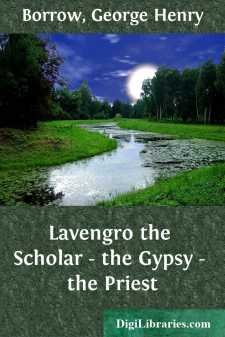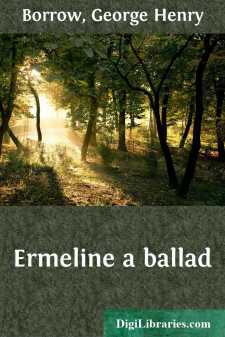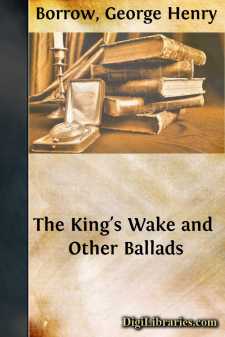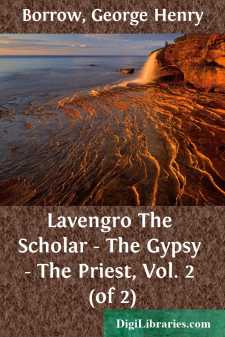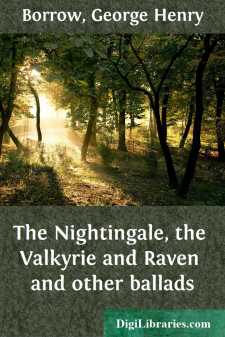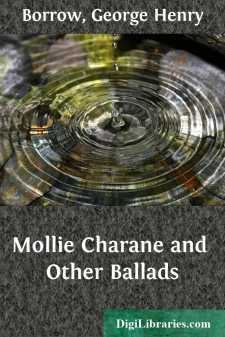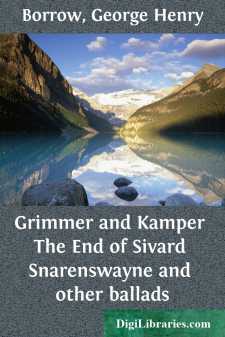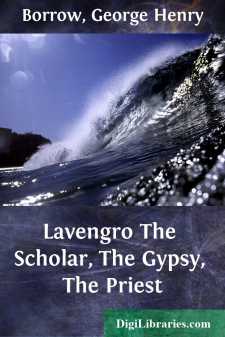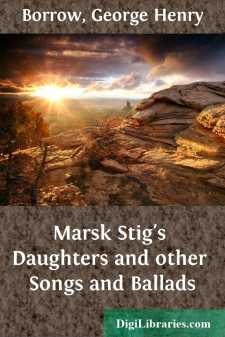Categories
- Antiques & Collectibles 13
- Architecture 36
- Art 48
- Bibles 22
- Biography & Autobiography 813
- Body, Mind & Spirit 138
- Business & Economics 28
- Children's Books 12
- Children's Fiction 9
- Computers 4
- Cooking 94
- Crafts & Hobbies 4
- Drama 346
- Education 46
- Family & Relationships 57
- Fiction 11821
- Games 19
- Gardening 17
- Health & Fitness 34
- History 1377
- House & Home 1
- Humor 147
- Juvenile Fiction 1873
- Juvenile Nonfiction 202
- Language Arts & Disciplines 88
- Law 16
- Literary Collections 686
- Literary Criticism 179
- Mathematics 13
- Medical 41
- Music 40
- Nature 179
- Non-Classifiable 1768
- Performing Arts 7
- Periodicals 1453
- Philosophy 64
- Photography 2
- Poetry 896
- Political Science 203
- Psychology 42
- Reference 154
- Religion 508
- Science 126
- Self-Help 81
- Social Science 81
- Sports & Recreation 34
- Study Aids 3
- Technology & Engineering 59
- Transportation 23
- Travel 463
- True Crime 29
Lavengro the Scholar - the Gypsy - the Priest
Categories:
Description:
Excerpt
NOTES UPON GEORGE BORROW.
I. Borrow as a Splendid Literary Amateur.
There are some writers who cannot be adequately criticised—who cannot, indeed, be adequately written about at all—save by those to whom they are personally known. I allude to those writers of genius who, having only partially mastered the art of importing their own individual characteristics into literary forms, end their life-work as they began it, remaining to the last amateurs in literary art. Of this class of writers George Borrow is generally taken to be the very type. Was he really so?
There are passages in “Lavengro” which are unsurpassed in the prose literature of England—unsurpassed, I mean, for mere perfection of style—for blending of strength and graphic power with limpidity and music of flow. Is “Lavengro” the work of a literary amateur who, yielding at will to every kind of authorial self-indulgence, fails to find artistic expression for the life moving within him—fails to project an individuality that his friends knew to have been unique? Of other writers of genius, admirable criticism may be made by those who have never known them in the flesh. Is this because each of those others, having passed from the stage of the literary amateur to that of the literary artist, is able to pour the stream of his personality into the literary mould and give to the world a true image of himself? It has been my chance of life to be brought into personal relations with many men of genius, but I feel that there are others who could write about them more adequately than I. Does Borrow stand alone? The admirers of his writings seem generally to think he does, for ever since I wrote my brief and hasty obituary notice of him in 1881, I have been urged to enlarge my reminiscences of him—urged not only by philologers and gypsologists, but by many others in England, America, and Germany. But I on my part have been for years urging upon the friend who introduced me to him, and who knew him years ago,—knew him when he was the comparatively young literary lion of East Anglia,—Dr. Gordon Hake, to do what others are urging me to do. Not only has the author of “Parables and Tales” more knowledge of the subject than any one else, but having a greater reputation than I, he can speak with more authority, and having a more brilliant pen than I, he can give a more vital picture than I can hope to give of our common friend. If he is, as he seems to be, fully determined not to depict Borrow in prose, let me urge him to continue in verse that admirable description of him contained in one of the well-known sonnets addressed to myself in “The New Day”:—
“And he, the walking lord of gipsy lore!
How often ’mid the deer that grazed the Park,
Or in the fields and heath and windy moor,
Made musical with many a soaring lark,
Have we not held brisk commune with him there,
While Lavengro, then towering by your side,
With rose complexion and bright silvery hair,
Would stop amid his swift and lounging stride
To tell the legends of the fading race—
As at the summons of his piercing glance,
Its story peopling his brown eyes and face,
While you called up that pendant of romance
To Petulengro with his boxing glory,
Your Amazonian Sinfi’s noble story!”
Dr. Hake, however, and those others among Borrow’s friends who are apt to smile at the way in which critics of the highest intelligence will stand baffled and bewildered before the eccentricities of “Lavengro” and “The Romany Rye”—some critics treating the work as autobiography spoilt, and some as spoilt fiction—forget that while it is easy to open a locked door with a key, to open a locked door without a key is a very different undertaking. On the subject of autobiographies and the autobiographic method, I had several interesting talks with Borrow. I remember an especial one that took place on Wimbledon Common, on a certain autumn morning when I was pointing out to him the spot called Gypsy Ring. He was in a very communicative mood that day, and more amenable to criticism than he generally was. I had been speaking of certain bold coincidences in “Lavengro” and “The Romany Rye”—especially that of Lavengro’s meeting by accident in the neighbourhood of Salisbury Plain the son of the very apple-woman of London Bridge with whom he had made friends, and also of such apparently manufactured situations as that of Lavengro’s coming upon the man whom Wordsworth’s poetry had sent into a deep slumber in a meadow.
“What is an autobiography?” he asked. “Is it a mere record of the incidents of a man’s life? or is it a picture of the man himself—his character, his soul?”
Now this I think a very suggestive question of Borrow’s with regard to himself and his own work. That he sat down to write his own life in “Lavengro” I know. He had no idea then of departing from the strict line of fact. Indeed, his letters to his friend Mr....


